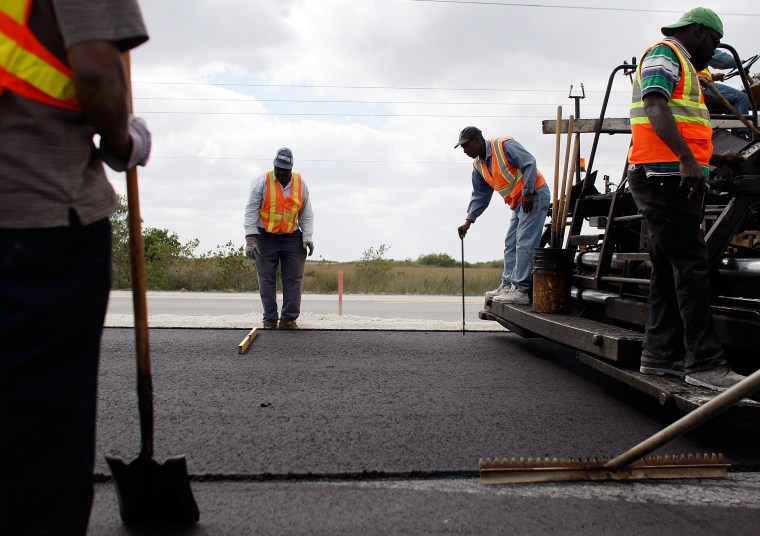There was an
interesting segment on "60 Minutes" last night on one my favorite topics: infrastructure. Steve Kroft told viewers:
"Business leaders, labor unions, governors, mayors, congressmen and presidents have complained about a lack of funding for years, but aside from a one-time cash infusion from the stimulus program, nothing much has changed. There is still no consensus on how to solve the problem or where to get the massive amounts of money needed to fix it, just another example of political paralysis in Washington. "Tens of millions of American cross over bridges every day without giving it much thought, unless they hit a pothole. But the infrastructure problem goes much deeper than pavement. It goes to crumbling concrete and corroded steel and the fact that nearly 70,000 bridges in America -- one out of every nine -- is now considered to be structurally deficient."
Kroft talked to Ray LaHood, the former Republican congressman who served as President Obama's Secretary of Transportation, who did his part to raise the alarm. "Our infrastructure is on life support right now," LaHood said. "That's what we're on."
He's right. The United States had a reputation for the finest infrastructure in the world, but as investments drop to their lowest level since 1947, the CBS segment added that we now rank 16th according to the World Economic Forum.
It's the sort of thing that hurts the economy, hurts U.S. competitiveness, and poses potential hazards to the public. The problem includes everything from highways to seaports, runways to railways. We've neglected infrastructure, and the more we delay investing, the more expensive the problem becomes to fix.
The "60 Minutes" segment was quick to characterize this as "a bipartisan failure," and in context, there's some truth to that -- the Highway Trust Fund, which plays a central role, has dwindled because no one wants to raise the gas tax that provides the resources for the fund.
But in the bigger picture, there's a clearer way to assess responsibility.
David Brooks
recently argued that there's a "completely obvious" way to boost job creation: "The federal government should borrow money at current interest rates to build infrastructure.... The fact that the federal government has not passed major infrastructure legislation is mind-boggling, considering how much support there is from both parties."
Brooks is half-right -- that is a "completely obvious" solution that would make an enormous difference, but the problem is that there isn't support from both parties; there's only support from one.
President Obama has pleaded with congressional Republicans for years to invest in infrastructure, but GOP lawmakers have repeatedly said public investments must be curtailed, regardless of the consequences, because government spending that creates jobs is bad for the economy.
America used to be a country that built for the future. Sometimes the government built directly: Public projects, from the Erie Canal to the Interstate Highway System, provided the backbone for economic growth. Sometimes it provided incentives to the private sector, like land grants to spur railroad construction. Either way, there was broad support for spending that would make us richer. But nowadays we simply won't invest, even when the need is obvious and the timing couldn't be better. And don't tell me that the problem is "political dysfunction" or some other weasel phrase that diffuses the blame. Our inability to invest doesn't reflect something wrong with "Washington"; it reflects the destructive ideology that has taken over the Republican Party.
We have infrastructure that needs repair. We have the ability to borrow easily and cheaply. We have workers eager to help the nation rebuild. We have the simple realization that the more we wait to address the problems, the more expensive it will be to fix.
What we don't have is a congressional majority willing to make the investments.
